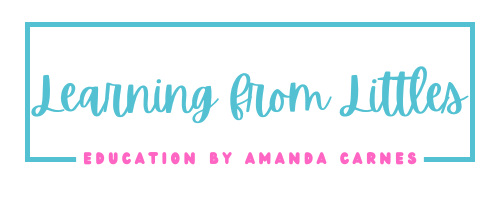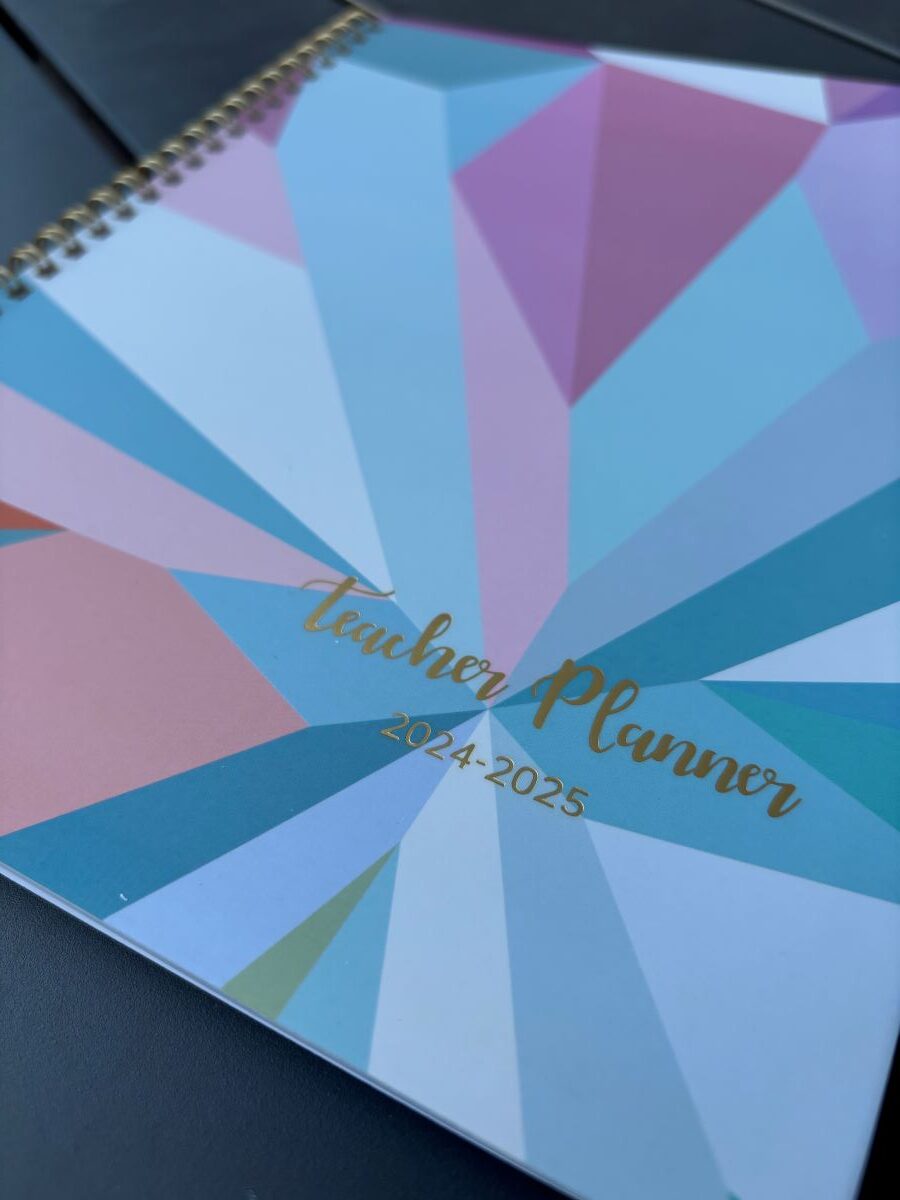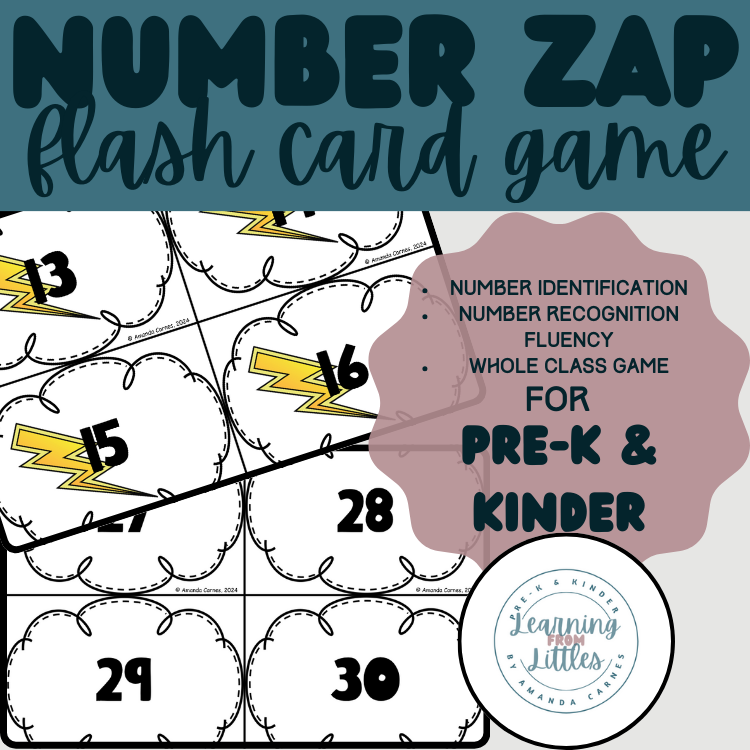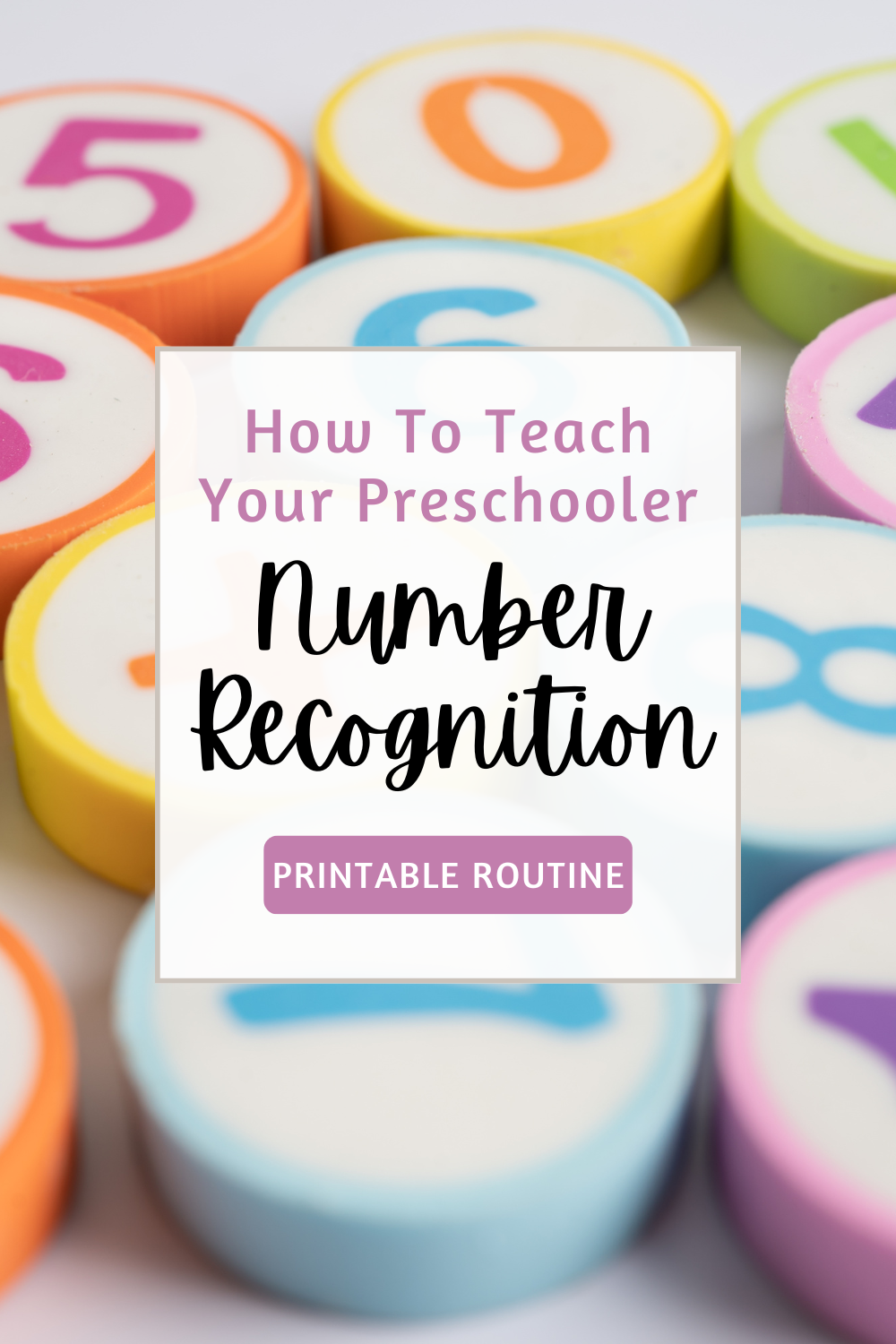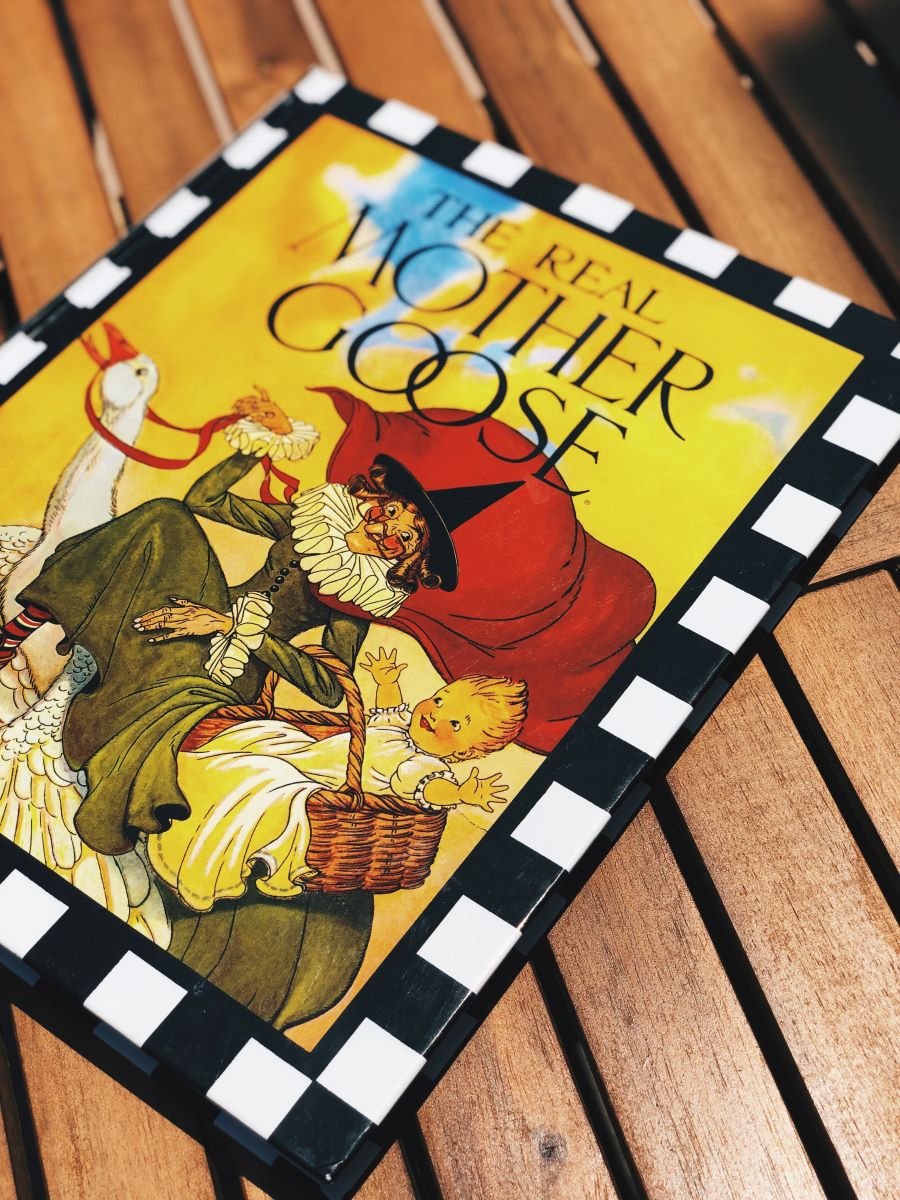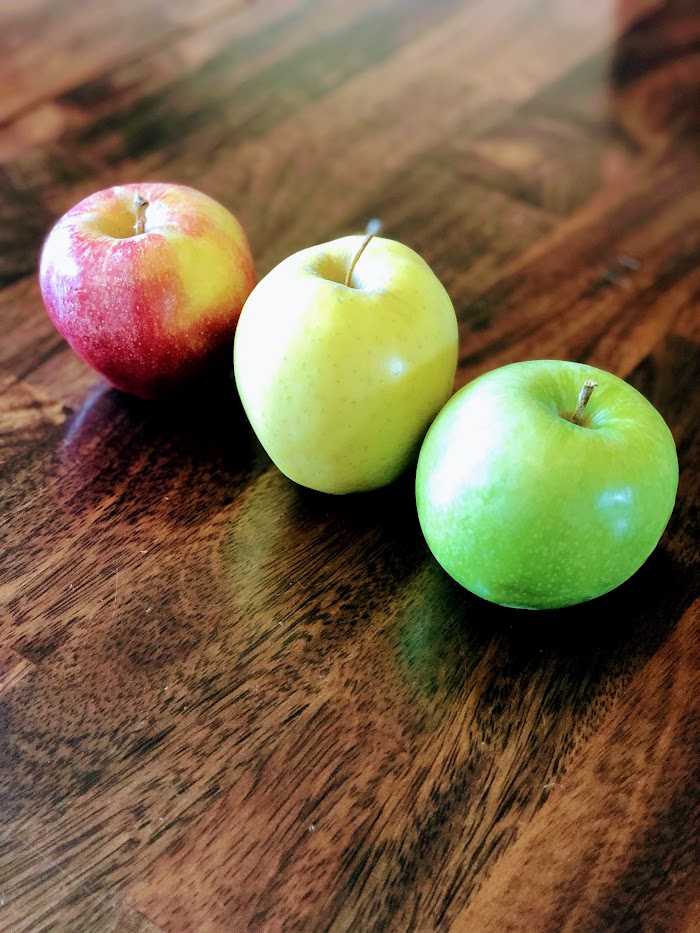A Simplified Preschool Lesson Planning Process for Teachers and Parents, Part 1
Wow! Summer is coming to an end, and I bet you are beginning to ponder preschool lesson planning for the beginning of the school year.
I’m sure there are so many thoughts and questions bouncing around in your mind about how to get started planning for the first week of preschool and beyond.
Here’s the good news! I’m going to take that burden and uncertainty away from you with this post.
For starters, I created a full week of preschool lesson plans FOR YOU, FOR FREE! These plans are intended for the first week of preschool and are comprehensive.
Learn more about my print and go lesson plans in this post.
Grab your free copy of the First 5 Days of Preschool Lesson Plans here!
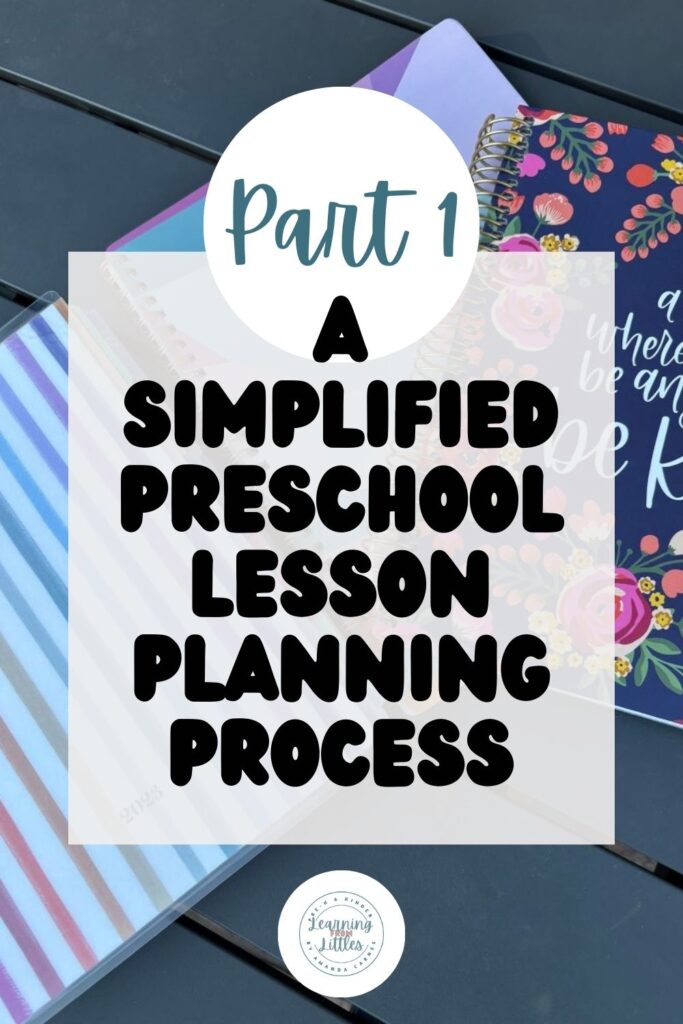
In this post:
- Importance of lesson planning for preschool
- Tools for planning preschool lessons
In Part 2 (coming soon):
- What to plan for
- How to make preschool lesson plans
- Resources for you to plan
Why do you need to make lesson plans for preschool, especially at the beginning of the year?
Okay, so preschool is just playing and learning the ABCs and counting, right? Why do we need to have a set plan?
Believe it or not, there’s actually a ton that goes into properly and effectively teaching preschool!
Let’s dig into a few of the benefits of mapping out your preschool lesson plans.
Organize your thinking
If planning does nothing else for you, it is definitely the best way to organize your thoughts and wrap your mind around your preschool curriculum.
What standards or objectives need covered
When you’re teaching preschool, you can’t just pull random ideas and cool activities. There must be a rhyme and reason to what you teach.
Effective preschool teachers have a goal, or objective, for every lesson or activity!
You want to make sure that all standards/objectives/goals are being met throughout the school year, and planning is the best way to keep track of that.
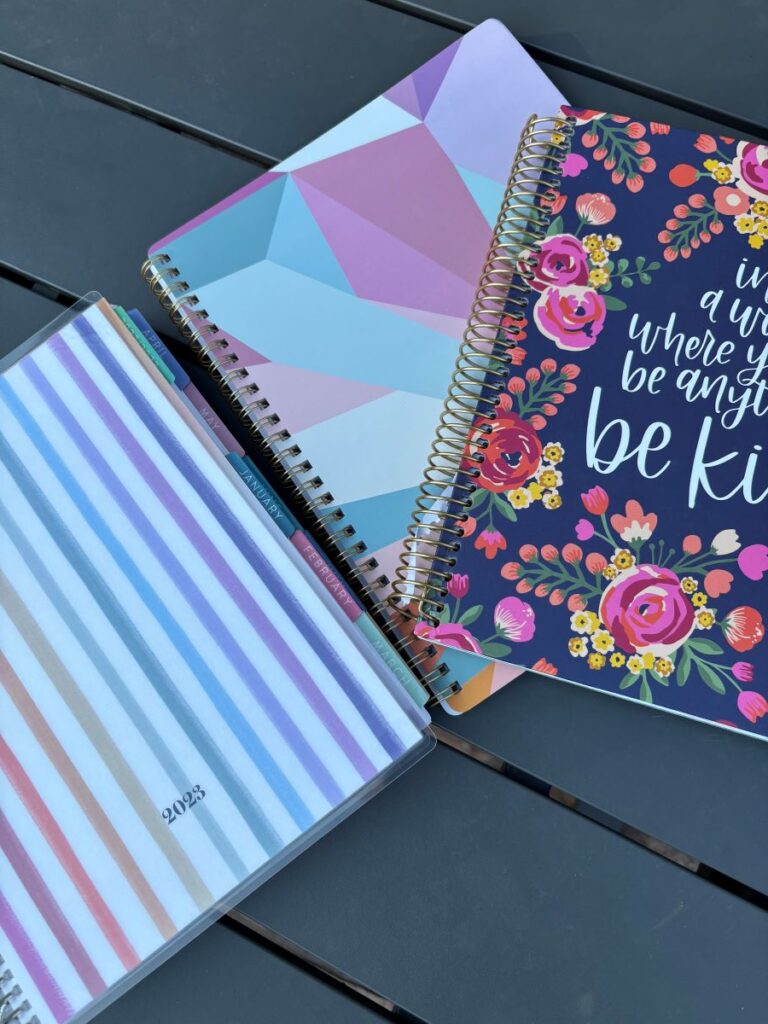
Make sure you plan for all areas of the preschool curriculum
An easy to read, at-a-glance planning layout makes it simple to plan for all areas of development for your preschoolers.
Find a planning structure that works for you, but I’ll tell you that my favorite layout is vertical.
I set up my plans like a grid with the days of the week on top and the areas of development/subjects on the side.
This makes it easy to just look down the column and see everything that needs to be instructed on that day.
Make planning easy for yourself and grab the First 5 Days of Preschool Lesson Plans here!
Writing down your preschool lesson plans takes the mental load off you
It’s no secret that moms and teachers carry an extremely heavy mental load! All the appointments, meetings, positive behavior strategies, activities, etc. pile up inside our brains.
It’s too much to bear!
Having a plan on paper (or digitally) helps alleviate this tremendous mental load. You do not need to remember every activity and lesson for the day on the top of your head.
Refer to your plan as much as you need to throughout the day.
Make a broad plan for the school year to map out standards and themes to be covered
Plans shift and change, and that’s okay! But having a general plan to start with can be so valuable.
At the beginning of the preschool year, set aside some time to map out your goals and the standards and themes you will be working on.
Sometimes we find amazing ideas and themes that we can’t wait to teach to our little learners, but it’s not always the best practice to jump into them right away.
Learning about pumpkins and harvest is fun (and super educational), but it obviously is going to be so much more meaningful to teach in October instead of April.
Studying a theme about seasons and weather can be too abstract during a relatively calm time of year (I’m thinking September or May). This topic can be more easily understood for young children during a time when the weather fluctuates often, or more extreme types of weather occur.
These are some of the factors we need to consider when mapping out the preschool year.
A broad plan for the year makes it easy for you to confirm that all the objectives and themes you want to cover during the school year are included.
Analyze the assessment data to guide preschool lesson plans
At the very beginning of the school year, you will not have much, if any, data to base planning decisions on.
But as the year progresses assessments will be so important in your lesson planning!
After a couple of days of teaching routines, procedures, expectations, etc. you may find yourself in a good place to start seeing what your little ones know.
Types of preschool assessments to look at
A basic skills assessment at the beginning of the year gives you a foundation of what your child/children already know and what they need to work on learning.
You can find tons of these basic preschool skills assessments on Teachers Pay Teachers, Pinterest, Google, etc. or you can make up your own.
Generally, you will want to assess knowledge of letters, numbers, counting, shapes, colors, and patterns.
As the year progresses, you will look at the data from curriculum assessments, your own observations, discussions, and universal assessments.

Modify your lesson plans accordingly
Okay, so you’ve given the assessments and considered what your little learners know. Now what?
This data is GOLD! Use it as a guide to show you exactly what skills to work on or continue working on next.
Maybe you planned to work on identifying numbers to 10, but your assessment data shows your little one has already mastered those numbers. Is it best to stick to your plan and continue to focus on those numbers?
Absolutely not! You should switch up the plan and start teaching about a few teen numbers.
The opposite could also be true. Let’s say you’ve spent the last 2 weeks working on the letters in your child’s name, so you have planned to work on a couple new letters.
After the assessment you see that they do not know all the letters in their name. Now you’ve got to switch up the plan and continue working on those letters.
It’s totally fine to revise your preschool lesson plans!
Use your preschool lesson plans as a reference as you go through the school year
Remember how your plans help alleviate your mental load? Refer to your daily, weekly, and yearly plans often.
Don’t try to remember everything you wanted to accomplish throughout the school year!
Use your plans as a guide to reference throughout the year to make sure you are staying on track in covering the objectives and themes you set out to teach.
Brand New to Teaching preschool at home?
If you are a new homeschooling parent, I have a 2-part guide to advise you on have a great first day of homeschool preschool.
Check out these posts:
The First Day of Homeschool Preschool- A How-To Guide, Part 1
The First Day of Homeschool Preschool- A How-To Guide, Part 2
What are the tools you need to effectively plan lessons for preschool?
You could just make up your lessons on your own, possibly spending hours trying to think of the best activities to ensure that your child learns what you set out for them to absorb.
Or you could NOT reinvent the wheel and use tools and resources available to make preschool lesson planning a breeze!
Know your preschool standards or objectives
Don’t just guess what preschoolers should know or teach whatever objectives are fun for you.
Use the preschool standards and objectives that have been researched and developed by early childhood experts!
This website is a great resource for finding the early learning standards and guidance for each state. Just click on your state of the map for a list of resources specific to your area.
Reference curriculums you have access to
There are so many curriculums out there for preschool! Your purchased or downloaded curriculum is quite literally the best tool for planning preschool lessons.
Get a planner
I’ve said it before and I’ll say it again now! Get your preschool lesson plans out of your brain on onto paper or a digital planner!
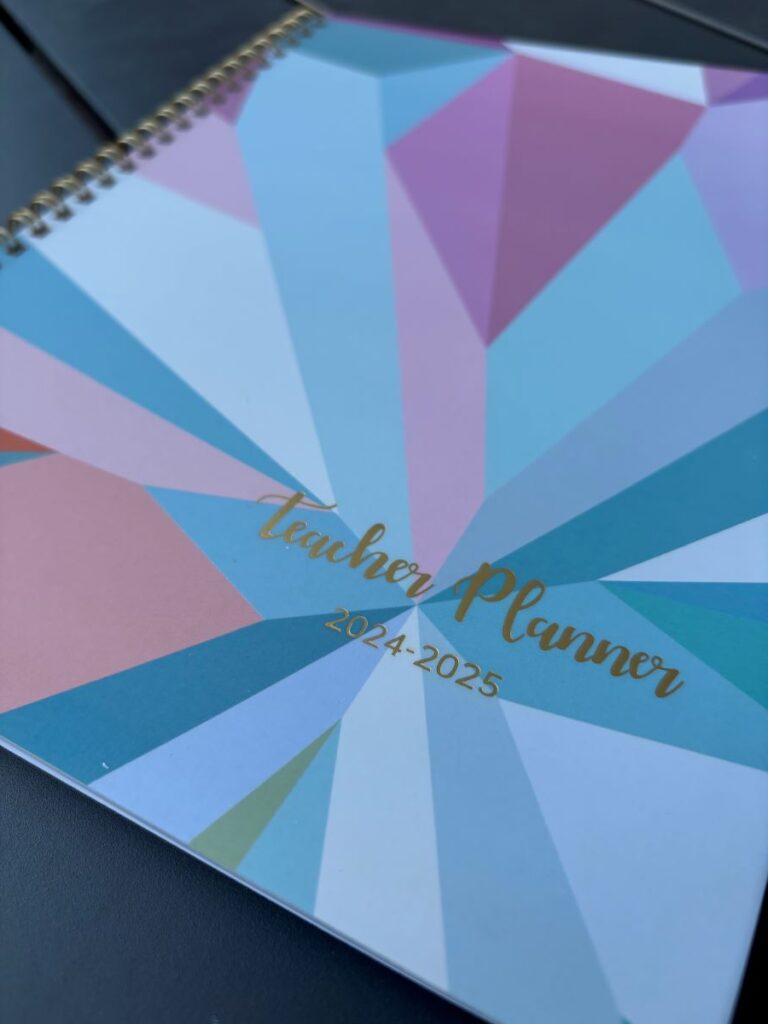
Physical planner
Planning layouts and style preferences vary so greatly from person to person. You need to find a planner that works best for you.
My favorite teacher planner is the Erin Condren Teacher Lesson Planner.
There are so many options out there. Search stores, Google, Amazon, Etsy, etc. to find a preschool lesson planner that fits your needs and planning style.
Digital planner
In our digital world, it only makes sense that a digital planner is the best option for many people.
Some popular online lesson planners are:
- Planboard
- Planbook
- Evernote
You can also purchase or create your own digital lesson planner!
The preschool lesson plans I created were simply made in PowerPoint.
Utilize online resources
There’s no shortage of engaging and fun resources for preschool lessons and activities. You just must know where to find them!
Most people are familiar with Pinterest and it’s easy to use visual search engine. Browse Pinterest or search for a specific topic or skill and be greeted with thousands of ideas.
Facebook Groups
There’s literally a Facebook group for everything! Find a group for preschool teachers or preschool homeschooling and have the experience from others like you from all around the world to guide you in your preschool lesson planning.
Instagram is an awesome resource! Follow early childhood teachers and homeschoolers for creative activities.
Blog sites (especially Learning from Littles 😊)
I encourage you to keep up with what I’m doing here at Learning from Littles! I promise to give you the BEST information and activities to help guide you on your early childhood education journey.
Stay informed by subscribing to our newsletter!
Part 2 of A Simplified Preschool Lesson Planning Process is coming soon!
In the next post I will dive deep into the specifics of lesson planning. We’ll cover all the areas of development to plan for and how-to create your effective lesson plans for preschool.
Let me know about your preschool planning process
Comment about your current process for creating preschool lesson plans. I always love learning new and innovative ways to create quality experiences for young learners.
